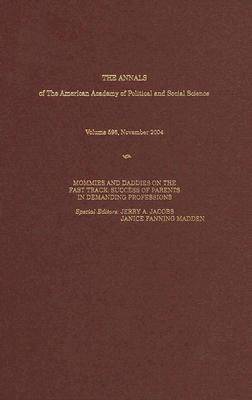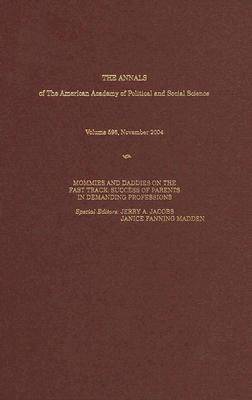
- Afhalen na 1 uur in een winkel met voorraad
- Gratis thuislevering in België vanaf € 30
- Ruim aanbod met 7 miljoen producten
- Afhalen na 1 uur in een winkel met voorraad
- Gratis thuislevering in België vanaf € 30
- Ruim aanbod met 7 miljoen producten
Mommies and Daddies on the Fast Track:
Success of Parents in Demanding Professions
Omschrijving
Can women - or men - in fast-track jobs have it all? Or are they being forced into delayed parenthood - or even denied parenthood? Do fast track workers who reduce their hours to accommodate family obligations stay on track, or do they become ineligible for top level promotions? Is the "mommy track" a temporary way station or total derailment? Are organizations and professions foregoing their most talented employees due to these high time demands and scheduling inflexibility?
With the increase of women in these fast-track fields, these questions affect more workers, drawing new attention. Recently, scholars from a variety of disciplines have been analyzing how organizational structures affect the career success rates of women or men in fast track jobs who devote more time to their families for a period and also the ability of successful women and men in these jobs to have families. The Alice Paul Center for Research on Women and Gender at the University of Pennsylvania hosted a conference dealing with the new research on families and fast track workers.
This special volume of The Annals includes the research papers from that conference. The papers include studies of the professions of academe, law, finance, and medicine. Also included are a study of the history of how college educated women have combined work and family over the last hundred years, and analysis of the forces that have led to inefficiently long hours for fast track workers, a study of fast track women who have dropped out, and discussions of policies and gender-based expectations that could change the capacity of workers to balance work and family obligations.
Specificaties
Betrokkenen
- Uitgeverij:
Inhoud
- Aantal bladzijden:
- 264
- Taal:
- Engels
- Reeks:
- Reeksnummer:
- nr. 596
Eigenschappen
- Productcode (EAN):
- 9781412915656
- Verschijningsdatum:
- 1/11/2004
- Uitvoering:
- Hardcover
- Formaat:
- Genaaid
- Afmetingen:
- 176 mm x 243 mm
- Gewicht:
- 598 g

Alleen bij Standaard Boekhandel
Beoordelingen
We publiceren alleen reviews die voldoen aan de voorwaarden voor reviews. Bekijk onze voorwaarden voor reviews.










